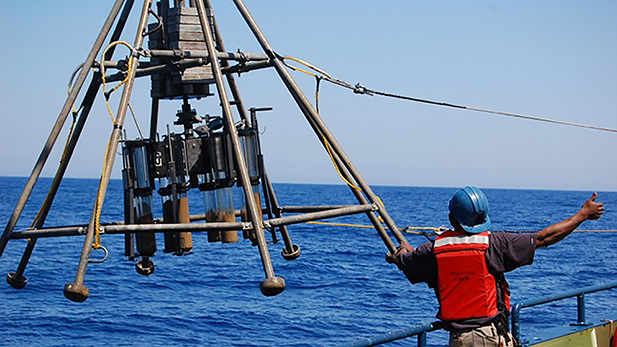 Collecting sediment cores aboard a ship.
Collecting sediment cores aboard a ship.Listen
By Sara Hammond, Arizona Science Desk
Data published by a University of Arizona paleoclimate researcher says the vulnerable Horn of Africa will likely become drier from climate change.
Geoscience Associate Professor Jessica Tierney reconstructed 2000 years of climate history in eastern Africa to try to place recent drying in context. Tierney used sediment cores and other archives in her study, published Oct. 9 in the scientific journal Sciences Advances.
“It looks like in the 20th century, the Horn of Africa has been getting drier and that seems to be related to the rise in greenhouse gases,” Tierney said.
“The longer paleoclimate context for that is, generally speaking, when it’s warm in the Horn of Africa, it tends to be drier, and when it’s cool, it’s wetter. We see that relationship hold for the last 2000 years,” she said.
The rainfall decline is occurring during the March to May “long rains” season.
Countries that comprise the eastern Horn of Africa study area include Somalia, Djibouti and eastern Ethiopia, among the areas affected by severe drought and famine in 2011 and 1983-1985. Those events resulted in worldwide humanitarian aid efforts to provide food and other assistance.
Tierney said her team’s research contradicts climate models done by the World Climate Research Programme which overemphasizes precipitation during the “short rains” season of September to November.
“Future drying in the eastern Horn of Africa will have a radical impact on growing season days and agriculture in the reason," the study concludes.
Tierney said the next step for researchers is to do more regional modeling work to figure out the nature of the link between a rise in carbon dioxide and the drying in the Horn of Africa.
The Arizona Science Desk is a collaboration of public broadcasting entities in the state, including Arizona Public Media.

By submitting your comments, you hereby give AZPM the right to post your comments and potentially use them in any other form of media operated by this institution.